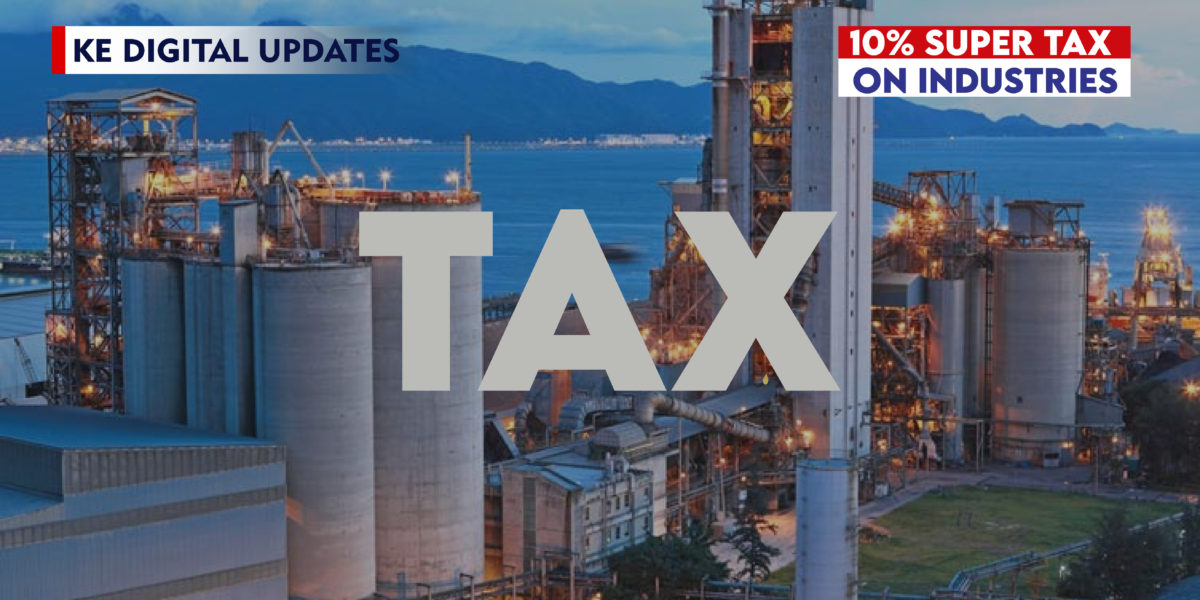The government’s hike in petroleum and energy prices is insufficient because the country’s debt has increased to RS.45 trillion, and foreign exchange reserves have declined to a low level. The government of Pakistan has imposed a 10% super tax on 13 industries to have a revenue of RS. 200 billion. The aim is to increase the tax revenue to have a primary surplus budget as the IMF demands. The government has imposed a 10% tax on wealthy fixed-income persons and firms.
The government has a slogan of “Poverty Alleviation” to compensate the poor people and eradicate poverty through super tax. It has imposed a tax of 4% on all the industries but 10% (with an additional levied of 6%) on 13 sectors, i.e., iron and steel, airlines, sugar, automobiles, fertilizer, banking, oil & gas, chemicals, LNG terminal, beverages, textile, and cigarettes/tobacco.
| TAX | Annual Income ( in Rupees) |
| 1% | 150 million |
| 2% | 200 million |
| 3% | 250 million |
| 4% | 300 million |
| 10% (4+6)=10 | 300 million (13 industries) |
According to Finance Minister Mifftah Ismail, the government has levied an additional 6% tax, a total of 10% tax on 13 selected industries with surplus profit margins. Taking excess profit with the help of super tax it will provide discounted prices for food items, and selected poor people can avail of petroleum products at low prices. The Poor will gain benefits from the super tax.
But facts are different; by imposing taxes, firms will shift the tax burden on consumers if they can survive in the current situation; otherwise, firms will close, unemployment & inflation will increase, poor and the rich will suffer. Investment & exports will decline in these sectors, and the country’s imports will increase. Foreign exchange reserves will decrease more. The benefits of taking a loan from the IMF will turn into more losses.
Super tax will be an act of killing the industries. Business Council has stated that Super Tax imposition has shattered the business community’s confidence. It had proved when the stock market crashed on Saturday and had a setback of about 2000 points.
Super tax on iron & steel and cement industry will affect not only these industries’ costs and employment but also the construction industry. The cost of construction will also increase. Construction business and private construction of houses will decrease.
Usually, governments provide subsidies and tax rebates to potential industries to increase investment, employment, productivity, and exports. Government should include the other sectors in the tax network rather than imposing a giant of taxes on a few industries. Government should give incentives to increase the Foreign Direct Investment and exports to increase the inflow of foreign currency and raise the foreign exchange reserves instead of relying on the funds from the IMF.


